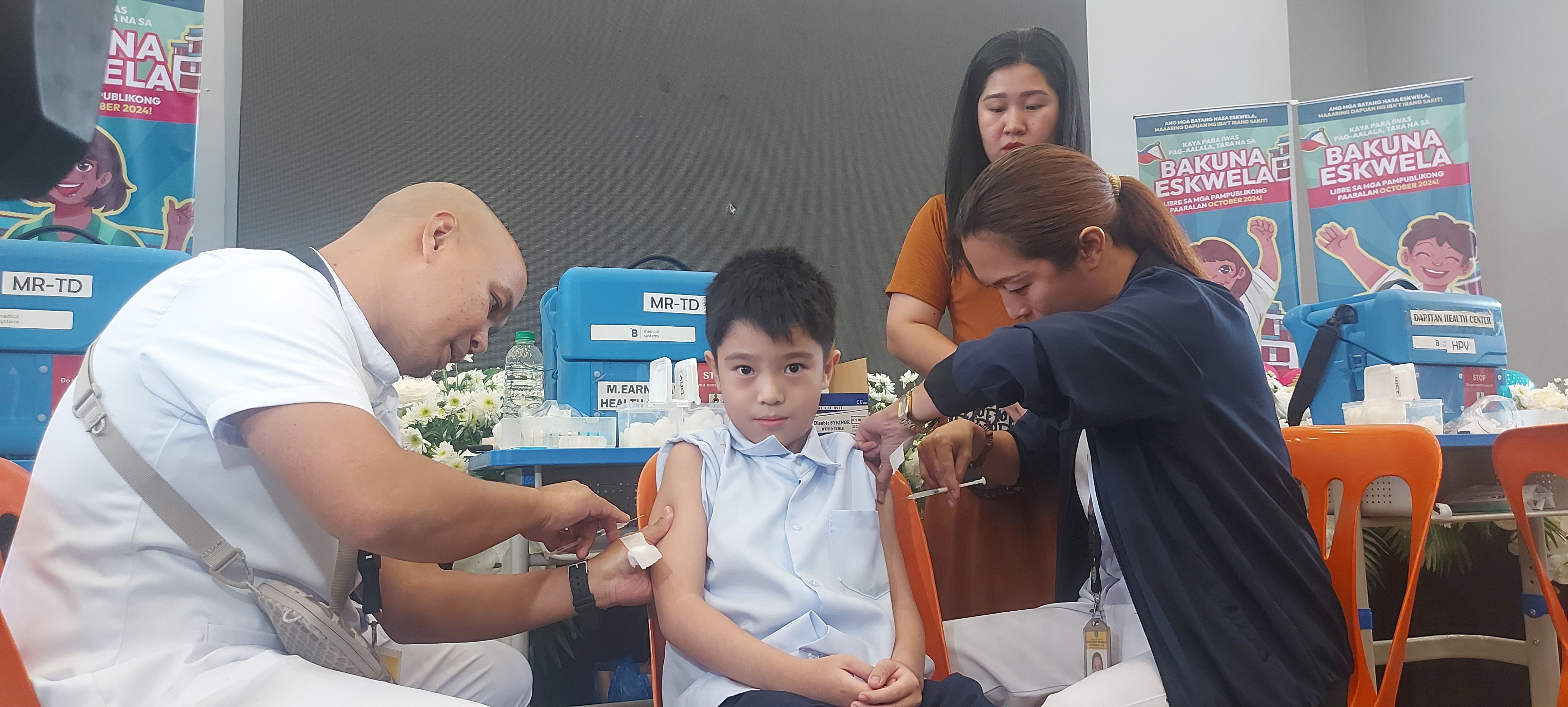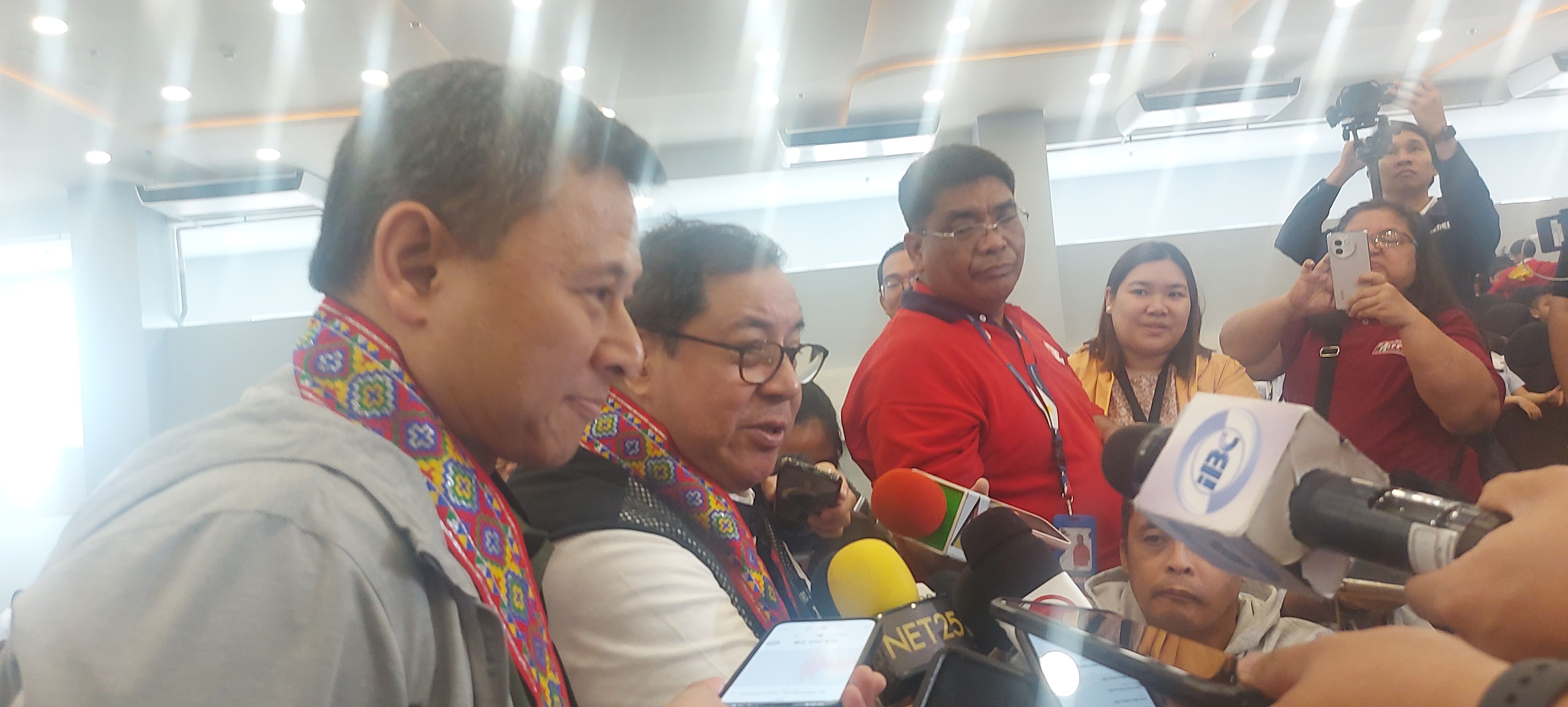'Bakuna Eskwela' drive to vaccinate at least 5M children in public schools
DepEd, DOH underscore the importance of school-based immunization
At least five million children in public schools are expected to be protected from vaccine-preventable diseases (VPDs) as the Department of Health (DOH) and the Department of Education (DepEd) formally launched their joint school-based immunization drive on Monday, Oct. 7.

Led by Health Secretary Teodoro Herbosa and Education Secretary Sonny Angara, the “Bakuna Eskwela” initiative was launched at Dr. A. Albert Elementary School in Manila, promoting safe and effective school-based immunization.
On the sidelines of the launch, Herbosa explained that the DOH aims to vaccinate at least five million children in public schools through the two-month “Bakuna Eskwela” campaign.
“Bakuna Eskwela” is a vaccination drive designed to protect school-aged children against measles, rubella, tetanus, diphtheria (MR, Td), and human papillomavirus (HPV).
Herbosa stated that the DOH and DepEd are targeting approximately 1.8 million students for MR vaccines, about 900,000 schoolgirls for HPV vaccines, and around two million children for Td vaccines. “We aim to reach almost five million children nationwide,” he explained.
School-based immunization
To emphasize the importance of vaccinating children, “Bakuna Eskwela” focuses on immunizing public school students in Grades 1 and 7 with MR and Td vaccines, and female Grade 4 students in selected public schools with the HPV vaccine, which protects against cervical cancer.

With a total budget allocation of P853 million, the DOH stated that the campaign will be implemented across public schools nationwide until November 2024.
Angara highlighted the significance of the vaccination program in maintaining healthy learning environments. “Through this, we can keep learners in school and ensure they don’t miss out on school days due to illness,” he added.
He also expressed his gratitude to the DOH for the opportunity to collaborate on improving education outcomes.
“School-based immunization supports this agenda by ensuring the physical and mental well-being of learners, allowing them to enjoy learning free from health burdens, and emphasizing a positive learning experience for our students,” Angara said.
The DOH explained that school-based immunization was suspended during the Covid-19 pandemic due to mobility restrictions.
With the resumption of face-to-face classes, the DOH and DepEd have reinstated the school-based immunization program at full capacity, following the issuance of DOH Department Memorandum 2024-0250, which is supported by DepEd Memorandum 2024-03-06789.
Data from the DOH revealed that from Jan. 1 to Sept. 14, 2024, there were 3,356 cases of measles and rubella, with 11 deaths; 215 cases of diphtheria, with 25 deaths; and 81 cases of neonatal tetanus, with 44 deaths.
The DOH also noted that approximately 7,897 women are diagnosed with cervical cancer each year, and about 4,052 die from the disease annually.
“All of these cases and deaths could have been prevented through safe and effective vaccination,” the DOH said.
During the launch, Herbosa also emphasized the government’s goal of creating a safe environment for Filipinos. “These diseases are dangerous and can be fatal,” he said. “We have strengthened vaccination efforts from birth to old age,” he added.
Both the DOH and DepEd also expressed their gratitude to President Marcos for his strong support of life-saving immunization efforts.
RELATED STORY:
https://mb.com.ph/2024/10/5/doh-dep-ed-to-kick-off-bakuna-eskwela